may-top.html
1798 The Battle of Carlow took place on this day in 1798. It was the second day of the United Irishmen’s rebellion against the British government. Mick Heydon led more than 1,000 men into the town, with the rebels planning to take control by attacking from four different points of the town.
What they didn’t know though, was that the British were well aware of the planned uprising and had soldiers stationed all over the town. The rebels marched into the town centre unopposed and were ready to celebrate their apparent easy victory when they were attacked with gunfire from by British soldiers hidden in the upstairs of buildings all around them.
The rebels tried to flee as they were unable to respond but they were ambushed on the ground as well by more troops. Some tried to escape by breaking into houses but those houses were set on fire. In total, more than 600 rebels and 400 innocent civilians were killed. One survivor recounted the terrible slaughter:
“I know a man as gentle as any who woke to realize his house was on fire [and] threw on some clothes and ran to the street carrying his young daughter. He was instantly shot dead and his child.”
Click for more on the 1798 Rebellion
Click here to read more about Irish history
Below shows the ruins of Carlow Castle.
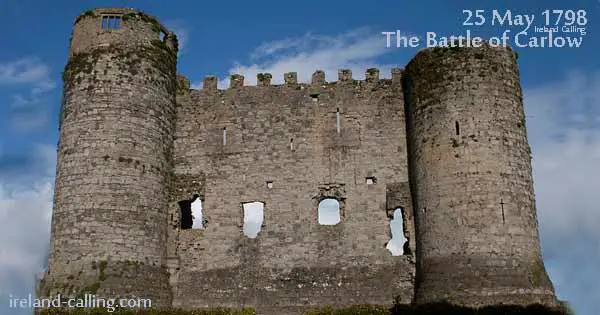 Carlow castle was built in the 13th century. It changed hands many times, and survived many battles and sieges. In 1814, the Earl of Thomond was converting it into a lunatic asylum, but used too much explosives and the castle was nearly destroyed. Only the outer face of the west wall and two towers could be saved.
Carlow castle was built in the 13th century. It changed hands many times, and survived many battles and sieges. In 1814, the Earl of Thomond was converting it into a lunatic asylum, but used too much explosives and the castle was nearly destroyed. Only the outer face of the west wall and two towers could be saved.
* * *
1885 Gerald Boland was born in Manchester on this day in 1885. He was a significant figure in Irish history. He moved to Dublin with his family at a young age and became a member of the Irish Republican Brotherhood. He fought under Thomas McDonagh in the Easter Rising in 1916, but was spared the death penalty by the British.
He also fought in the Irish Civil War, with the anti-treaty faction of the IRA. Boland’s younger brother, Harry was killed during the conflict. Boland was a staunch supporter of Éamon de Valera and helped him establish Fianna Fáil when they became unhappy with the direction Sinn Feín was moving.
In 1933 Fianna Fáil were elected into power in Ireland and Boland was made part of the cabinet as Chief Whip. He later served as Minister for Defence and Boland remained a Teachta Dála up until 1963.
Click here to read more about the Easter Rising
* * *
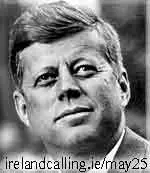 1961 Irish American President Kennedy made an address to congress on this day in 1961 regarding the exploration of space. He said:
1961 Irish American President Kennedy made an address to congress on this day in 1961 regarding the exploration of space. He said:
“I believe this nation should commit itself, to achieving the goal, before this decade is out, of landing a man on the Moon and returning him safely to the earth.”
As a result of President Kennedy’s appeal, funding for the space programme was increased. The target was achieved on 20th July 1969, when Neil Armstrong and his crew successfully landed Apollo 11 on the moon.
* * *
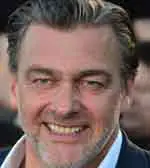 1964 Ray Stevenson was born in Co Antrim on this day in 1964. He is a film and television actor who has had several major roles throughout his career. Television viewers will recognise Stevenson as Titus Pullo in Rome, Isaak Sirko in Dexter.
1964 Ray Stevenson was born in Co Antrim on this day in 1964. He is a film and television actor who has had several major roles throughout his career. Television viewers will recognise Stevenson as Titus Pullo in Rome, Isaak Sirko in Dexter.
He has also had roles in major Hollywood films such as The Three Musketeers, Thor and Divergent and Insurgent.
Click here to read about more Irish actors
* * *
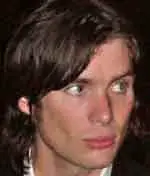 1976 Happy birthday to Cillian Murphy, born in Cork on this day in 1976. He is a film actor who became a household name in Britain and Ireland after starring in the 2002 smash British zombie film, 28 Days Later.
1976 Happy birthday to Cillian Murphy, born in Cork on this day in 1976. He is a film actor who became a household name in Britain and Ireland after starring in the 2002 smash British zombie film, 28 Days Later.
Murphy has since become one of the most sought after actors in Hollywood and has starred in films with stars such as Robert De Niro, Johnny Depp, Morgan Freeman and Leonardo DiCaprio.
Click here to read more about Cillian Murphy
* * *
1993 Dawson Stelfox safely returned to the foot of the Mount Everest on this day in 1993. He had become the first Irish man to reach the successfully climb to the summit of the world’s highest peak. Stelfox spoke about his historic climb to the Irish Telegraph years later:
“The rock steepens and you see no way up. Then instinct kicks in and you fight your way through the crux. A barrier is broken, confidence gained. The essence of climbing is in that act.”
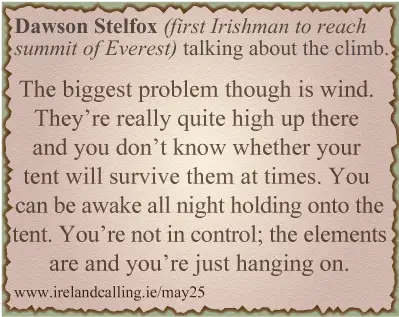
Click here to read about other top Irish sports stars
may-bottom.html
